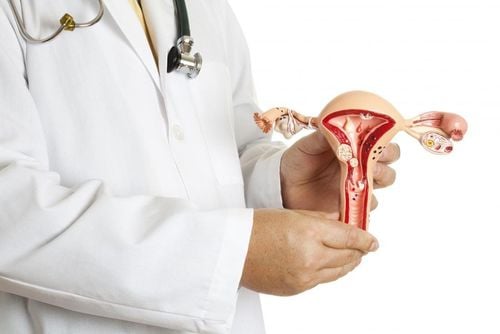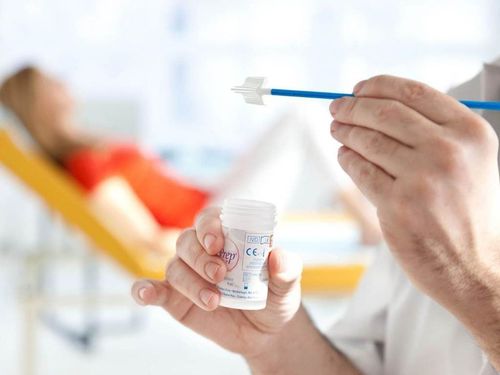This is an automatically translated article.
When entering the age of 30, it means that the body is also gradually approaching the aging process. Therefore, it is necessary to pay more attention to health care after the age of 30. Here are the principles of health care after the age of 30 that you should follow.
1. Follow a healthy diet
Diet plays an important role in ensuring the body's healthy development. In particular, for health care after the age of 30, a healthy diet helps to promote health and prevent the aging process.
After the age of 30, you should have a complete and balanced diet with 4 important groups of nutrients, which are protein, carbohydrates, fats, vitamins and minerals. In addition, eating lots of green vegetables and fruits to add fiber and limiting foods high in sugar and calories will help maintain optimal health.
2. Exercise regularly every day
For all ages, physical exercise and regular exercise are always important to maintain health, get in shape, ideal weight and reduce the risk of diseases later in life. The rule to take care of a woman's health in her 30s is to choose the right type of exercise for herself and start exercising as soon as possible.
Exercises such as cardio, running, cycling, swimming are ideal choices to increase fitness and build endurance for the body. Kegel exercises, also known as pelvic floor strengthening exercises, work to strengthen the pelvic floor muscles. Doing kegels for at least 30 seconds a day will improve pelvic floor muscle strength, helping to reduce the risk of urinary incontinence (common problem affecting about 40% of women by the time they turn 30). ).
3. Take care of your health after the age of 30 with regular health check-ups
Along with the 30-year-old health care principles, a regular check-up every 6 months to ensure a healthy body. Recommendations for screening tests for women in their 30s are as follows:
Measure blood pressure for early detection of hypertension. Measure at least twice a year and more often if blood pressure is 120/80 mmHg or higher. Have a blood lipid test every 5 years or more often if at risk for cardiovascular disease. In particular, women who are overweight or obese after 30 years of age should have regular health check-ups to detect chronic diseases and take measures to control their weight. Breast exam every 3 years to screen for breast disease or more often if abnormal symptoms are detected. Regular breast exams help in timely detection and early treatment of breast cancer. Women should do a breast self-exam and let their doctor know if there are any signs, swelling, rash, pain in either breast, or a strange lump in one breast. For women who have or a family member with breast cancer, it is recommended to have an early mammogram as early as age 35. Have an eye exam at least twice a year between the ages of 30 and 39. If you have a family history or personal history of eye disease, have had an eye injury, or have diabetes, you should get your eyes checked more often. Regular dental check-ups every 6 months to detect early dental diseases, bone loss in teeth. Scaling and cleaning your teeth to prevent dental disease. Screen for diabetes early after age 30 if blood pressure is higher than 135/80 mmHg or risk factors. Test blood glucose in the morning after fasting for at least 8 hours. If after age 30, but no risk factors for diabetes, screening will be done after age 45. Cervical cancer screening is through a Pap test (cervical smear) every 3 once a year or combine a Pap test with an HPV test every 5 years. But if women have risk factors such as an abnormal Pap test, have multiple sex partners, have HIV infection, are immunocompromised, or have used Diethylstilbestrol (DES), they should be screened annually. Annual gynecological examination to detect diseases of the ovaries and uterus, such as ovarian cysts, uterine fibroids, ... Screen for sexually transmitted diseases such as HIV, gonorrhea if the woman has a history of chlamydia infection, a history of other STIs, or a multiple-relationship partner. Dermatological examination to prevent cancer. Asians have a much lower incidence of skin cancer than Europeans, so there is no need for routine dermatology unless there is bleeding in hyperpigmented/hypopigmented areas, moles, or other abnormalities. on the skin.

Chăm sóc sức khỏe tuổi 30 bằng cách kiểm tra sức khỏe định kỳ
4. Limit sitting for too long
People in their 30s become more active, moving more instead of sitting in one place for a long time. The habit of sitting in one place for too long all day long causes many harms to health, especially the spine and discs. An Australian study has shown that people who sit continuously for more than 6 hours a day have a 40% higher risk of death, compared to those who sit for less than 3 hours. Therefore, in order to limit the harmful effects of sitting for a long time, so that the body does not become stiff and help blood circulation, it is advisable to stand up and walk or go up and down the stairs for a few minutes alternating between working times.
5. Control anger and limit negative emotions
The older you get, the more problems you face at work and in daily life. These problems cause negative self-emotions such as sadness, depression, or anger. The anger makes the heart beat faster and faster, the blood pressure rises suddenly, long-term will lead to high blood pressure and cardiovascular disease. In addition, irritability and negative emotions also severely affect sleep quality and appetite, causing insomnia and anorexia.
Manage your anger by practicing slow, steady inhalations and exhalations, repeating several times until you feel the anger subside. In addition, people who get angry easily, or have negative emotions should participate in meditation or yoga to balance emotions and stabilize mood.
6. Care about musculoskeletal health
When you pass the age of 30, the strength of the musculoskeletal system is gradually weakening. The muscles gradually lose tone, affecting the health, shape and balance of the body. Bone density increases rapidly during adolescence, peaks at age 30, and then begins to decline, about 1% per year. If bone density is too low, there is a risk of osteoporosis. Therefore, health care after the age of 30 should pay much attention to the health of musculoskeletal.
People after the age of 30 need to take care of their musculoskeletal health to reduce the risk of osteoporosis by:
Enhance the absorption of calcium and minerals from food sources such as milk, seafood, green vegetables. Exercise regularly at least 30-60 minutes a day to help keep muscles, bones and joints strong.

Quan tâm đến sức khỏe cơ xương khớp khi chăm sóc sức khỏe tuổi 30
7. Apply sunscreen
After the age of 30, the aging process begins to make skin cells not able to regenerate as quickly as when they were young. This makes the skin less bright, more wrinkles. At the same time, the ultraviolet rays in the sun cause great damage to the skin, which can lead to skin cancer. To protect skin from UV damage, apply sunscreen with an SPF of at least 30 30 minutes before going outdoors. Not only helps the skin to avoid darkening, applying sunscreen also reduces the risk of skin cancer, slows down the skin aging process. In addition, cleansers and moisturizers also work to clean and maintain skin moisture.8. Get vaccinated against disease
Vaccination is an effective measure to take good care of your health after the age of 30. The vaccines that should be given if not already vaccinated are:
Hepatitis A vaccine: For people who live, work or travel to areas where the hepatitis A virus is highly active. Hepatitis B vaccine: For those who have not been vaccinated since childhood, those who are at high risk of infection such as promiscuous sex, injecting drug use, and sexually transmitted diseases. , work in contact with blood and secretions. Influenza vaccine: Get a flu shot every year to protect yourself Pneumococcal vaccine for smokers, chronic diseases. Tetanus: A tetanus shot is required every 10 years. In short, entering the age of 30 means that the body is also gradually approaching the aging process. Therefore, it is necessary to pay more attention to health after the age of 30.
Please dial HOTLINE for more information or register for an appointment HERE. Download MyVinmec app to make appointments faster and to manage your bookings easily.













